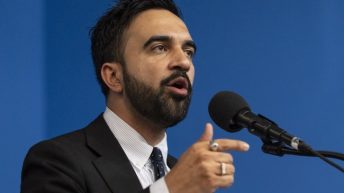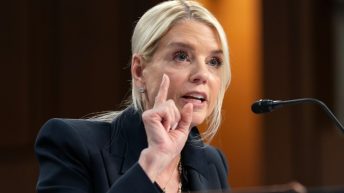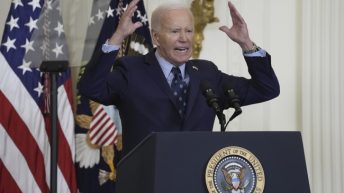Senate Majority Leader John Thune, R-S.D., said he spoke with President Donald Trump on Sunday night about the government shutdown, now in its 27th day, but admitted Democrats still lack a clear plan to reopen it.
Senator Thune confirmed a direct conversation with President Donald Trump as the shutdown crossed its 27th day, framing the exchange as part of ongoing Republican efforts to resolve the stalemate. From a Republican standpoint, the central problem remains that Democrats have not offered a serious, concrete path to reopen the government while addressing border security and fiscal responsibility. Thune’s comments underline the party’s impatience with delay tactics and what Republicans see as a refusal to engage on the core issues driving the impasse. That refusal, GOP leaders argue, is costing federal workers and harming public services without producing any workable alternative.
The shutdown’s toll on federal employees and the economy has been a constant Republican talking point, and Thune’s outreach to the president was intended to keep momentum on negotiating terms that protect taxpayers. Republicans contend they have proposed targeted measures to keep critical services funded while tying further funding to meaningful border security reforms. Those proposals emphasize efficient spending, enforcement of existing laws, and measures aimed at stemming illegal immigration rather than open-ended budget increases. In Washington, messaging matters, and GOP leaders have used Thune’s remarks to highlight what they call Democratic obstruction.
Republicans also stress the national security angle, arguing the shutdown has exposed vulnerabilities at ports of entry and along the southern border. Party leaders insist that funding mechanisms should prioritize technology, personnel, and physical barriers where they are most effective. Thune and others frame such investments not as political bargaining chips but as basic steps to secure the country and protect communities. This perspective holds that a government reopened without fixes at the border would simply kick the can down the road.
On the procedural front, the GOP has pushed for targeted, short-term funding bills that keep essential operations running while focusing debates on legislation that addresses core concerns. Thune’s conversation with President Trump reflected that approach: maintain pressure for negotiations while avoiding concessions that would abandon long-term priorities. Republicans argue that piecemeal funding paired with clear policy demands is a pragmatic way forward. It allows lawmakers to demonstrate responsiveness to constituents while keeping leverage to demand substantive reforms.
The human cost of the shutdown remains a key element of the Republican narrative, with emphasis on furloughed workers and delayed services for veterans, travelers, and small businesses. Thune and other Republicans point to those real-world impacts as justification for a swift resolution that does not sacrifice border control or fiscal discipline. The argument rejects framing the issue as purely partisan; instead, GOP leaders insist it is about responsibility to taxpayers and national safety. That framing aims to shift public blame toward Democratic leaders who refuse to negotiate on these terms.
Critics of the Democratic position within the Republican Party say that offers from the GOP have been reasonable and targeted, but Democrats continue to demand broader terms that Republicans view as unacceptable. Thune’s public statements convey frustration with what he described as a lack of a “clear plan” from the other side, shorthand for no willingness to accept trade-offs. Republicans maintain they are prepared to work, but only if negotiations include enforceable measures on both spending and immigration. The insistence on clarity and enforceability is meant to prevent temporary fixes that leave the underlying problems unresolved.
As the shutdown drags on, Republicans use messages like Thune’s to argue for accountability and to remind voters of the stakes: government functions, national security, and fiscal sanity. The party’s strategy blends public pressure with legislative maneuvering, trying to force a choice between reopening with reforms or continuing the shutdown until Democrats compromise. That approach reflects a belief that principles like border integrity and responsible budgeting are not negotiable in the long run. Lawmakers on the Republican side say they will keep engaging in discussions with the president while holding firm on those priorities.
For now, the impasse remains unresolved and the 27th day of the shutdown serves as a marker of how quickly routine governance can be disrupted. Thune’s exchange with President Donald Trump is positioned by Republicans as part of a steady effort to break the deadlock without surrendering key policy goals. The coming days will show whether Democrats produce the clarity Thune says is missing, or whether the shutdown continues as both parties dig in on their demands. In the GOP view, reopening must come with meaningful steps toward securing the border and reining in unchecked spending.




Add comment